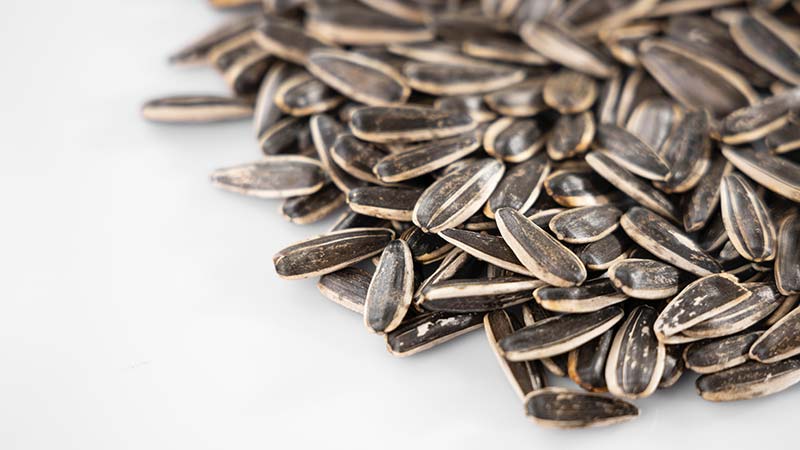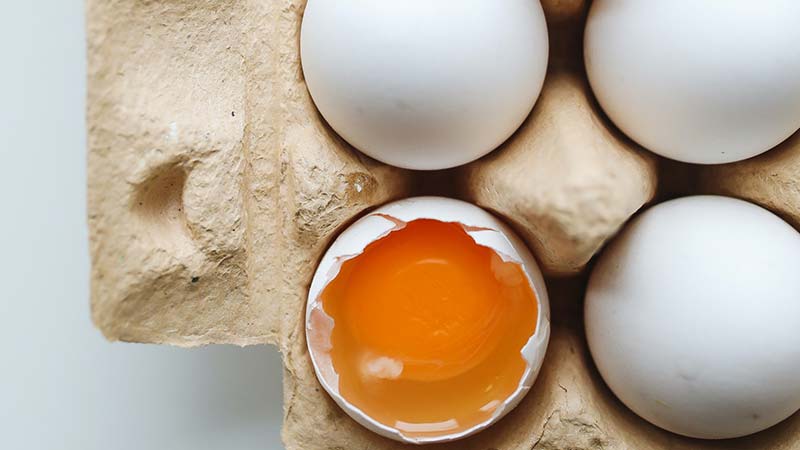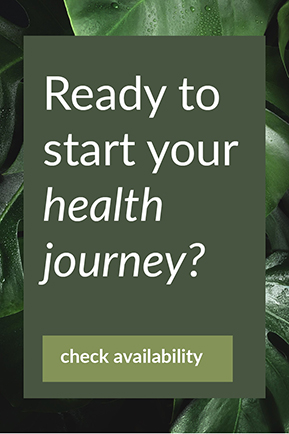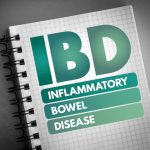The postpartum period, also known as “the fourth trimester”, is a time of immense physical and emotional change, as you not only recover from pregnancy and childbirth, but also move into a brand new phase of life: motherhood. It is an important period for rest, recovery, and rebuilding your nutritional stores after 9 months of growing another human being. From physically recovering from childbirth, to accounting for the increased nutritional demands of breastfeeding, your body is in great need of vital nutrients during this time, and careful nutritional support can be immensely helpful in coping with this stage of life. Supporting yourself nutritionally is also important for your mental health – studies have shown that deficiencies in key nutrients, including folate, iron, vitamin D, and essential fatty acids, can increase the risk of postnatal depression. Below we discuss some of the key nutrients to consider for helping to support your health during the months that follow childbirth, as well as some general guidelines for a healthy diet that supports both you and baby.
Protein
Eating quality protein is important for any kind of physical recovery period, and the postpartum period is no different. Protein is important for tissue repair and collagen production, as well as for normal hormone balance.
Incorporating a source of high-quality protein in each of your main meals will help to ensure you are eating adequate amounts for optimal recovery. Try incorporating healthy protein sources like lean meats, chicken, free-range eggs, nuts and seeds, lentils and other legumes.
Complex Carbohydrates
Carbohydrates are essential for energy production, which is an important consideration for busy, sleep-deprived mums! In addition, glucose is required for producing the lactose found in breastmilk, so breastfeeding mothers have a slightly increased carbohydrate requirement during this time. However, it’s still best to avoid highly sugary foods such as pastries, cakes, white bread and sweets, which provide only short-term sugar spikes and lack other nutrients.
Choosing high quality complex carbohydrates such as brown rice, whole grain breads, and starchy vegetables likes potato and sweet potato, will help to ensure you are also eating adequate fibre, and will help to boost your intake of important micronutrients such as B vitamins.

Healthy Fats
Healthy unsaturated fats are important for ensuring your body can absorb fat-soluble vitamins such as vitamin A and vitamin D and can help to reduce inflammation in the body. Omega-3 fatty acids are particularly important to pay attention to in the postpartum period.
Following childbirth, previously elevated oestrogen levels drop significantly. This drop in oestrogen is associated with depressive symptoms and may play a role in postnatal depression. Omega 3 fatty acids have been shown to help improve oestrogen levels postnatally and should be an important consideration for helping to support your body during postpartum recovery.
Food sources of omega 3 fatty acids include oily fish such as salmon, tuna and sardines, flax seeds, walnuts, and chia seeds. Other unsaturated fats can be found in foods such as almonds, cashews, avocados, olives and extra virgin olive oil.

Iron
Iron is truly one of the most important micronutrients to consider in the postpartum period. Iron deficiency is a relatively common issue among pregnant women and can be further exacerbated following blood losses during childbirth.
Iron is not only vital for energy levels and transporting oxygen to body tissues but is also vital for your baby’s growth and development. Depleted iron stores can lead to issues with fatigue and may also leave women at increased risk of postnatal depression.
Iron can be found in lean red meat, lentils, chickpeas, kidney beans, sunflower seeds, pumpkin seeds, and even dried apricots.

Calcium
Calcium is vital for bone development and cardiovascular functioning for your baby. It is so crucial that during both pregnancy and breastfeeding, your body will draw calcium out of your bones to supply to baby. Ensuring you are consuming sufficient calcium helps to protect your bone density and also protects baby from health risks.
Healthy calcium sources include Calcium-rich food sources include dairy products, eggs, green leafy vegetables (such as spinach, kale and collards), sardines, walnuts, almonds, and broccoli.
Vitamin D
Vitamin D is important for immune function and also plays an important role in helping to maintain calcium levels in the body for bone, muscle and heart health. Studies have shown that having adequate levels of vitamin D may be important in preventing postnatal depression. Healthy food sources of vitamin D include fish (such as salmon, sardines and tuna) and free-range eggs. Sunlight exposure is however the best source of vitamin D – even just 15 minutes of sun exposure per day can help to improve your vitamin D levels.

Iodine
Iodine is a crucial nutrient for infant brain development and thyroid function – iodine deficiency in early life can significantly affect baby’s cognitive development.
Alarmingly, up to 50% of children and pregnant and breastfeeding women in Australia are low in iodine. This is partly because Australian soils contain only low amounts of iodine, which reduces the amount found in Australian-grown fruits and vegetables.
Commercially produced breads in Australia are fortified with iodine to help combat this issue, but iodine can also be found in seafoods, free-range eggs and meats.

Guidelines for Nourishing Yourself and Your Baby in the Postpartum Period
Eat a balanced diet high in nutrient-dense foods, with a focus on plenty of whole-foods:
- Lots of fresh fruits and vegetables in different colours
- Choose high-quality protein sources such as fish, legumes, lean organic meats and free-range eggs
- Choose healthy complex carbohydrates such as potatoes, sweet potatoes, and wholegrain carbohydrates such as brown rice, oats, and wholegrain bread
Opt for well-cooked, easy to digest foods
Consider soups, curries and stews – the slow cooker is your friend! These are also ideal for meal prepping, so you can cook a large batch and freeze portions for future meals
Drink plenty of water!
Water is needed to help ensure you are sufficiently hydrated to be producing plenty of milk
Consider supplementation
If you are a vegan or vegetarian, have had multiple pregnancies in the previous 2 years, or have had issues with nutrient deficiency during your pregnancy, it may be beneficial for you to add supplements to your diet. Speak to your naturopath to see if this is an appropriate option for you.
If you would like more information on how to support your health post childbirth, book an appointment with Tanya to learn more and start feeling better.
References
Amini, S., Jafarirad, S., & Amani, R. (2018). Postpartum depression and vitamin D: A systematic review. Critical Reviews in Food Science and Nutrition. https://doi.org/10.1080/10408398.2017.1423276
Leung, B. M. Y., & Kaplan, B. J. (2009). Perinatal depression: Prevalence, risks, and the nutrition link: A review of the literature. Journal of the American Dietetic Association, 109(9), 1566–1575. https://doi.org/10.1016/j.jada.2009.06.368
Nishi, D., Su, K.-P., Usuda, K., Chang, J. P.-C., Hamazaki, K., Ishima, T., Sano, Y., Ito, H., Isaka, K., Tachibana, Y., Tanigaki, S., Suzuki, T., Hashimoto, K., & Matsuoka, Y. J. (2020). Plasma estradiol levels and antidepressant effects of omega-3 fatty acids in pregnant women. Brain, Behavior and Immunity, 85, 29–34.
Sparling, T. M., Nesbitt, R. C., Henschke, N., & Gabrysch, S. (2017). Nutrients and perinatal depression: A systematic review. Journal of Nutritional Science. https://doi.org/10.1017/jns.2017.58
Thyroid Foundation. (2020). Iodine deficiency. https://thyroidfoundation.org.au/Iodine-Deficiency
Wassef, A., Nguyen, Q. D., & St-Andre, M. (2019). Anaemia and depletion of iron stores as risk factors for postpartum depression: A literature review. Journal of Psychosomatic Obstetrics & Gynecology, 40(1). https://doi.org/10.1080/0167482X.2018.1427725
Whitney, E., & Rolfes, S. R. (2013). Understanding nutrition (13th Ed.). Wadsworth Cengage Learning.











